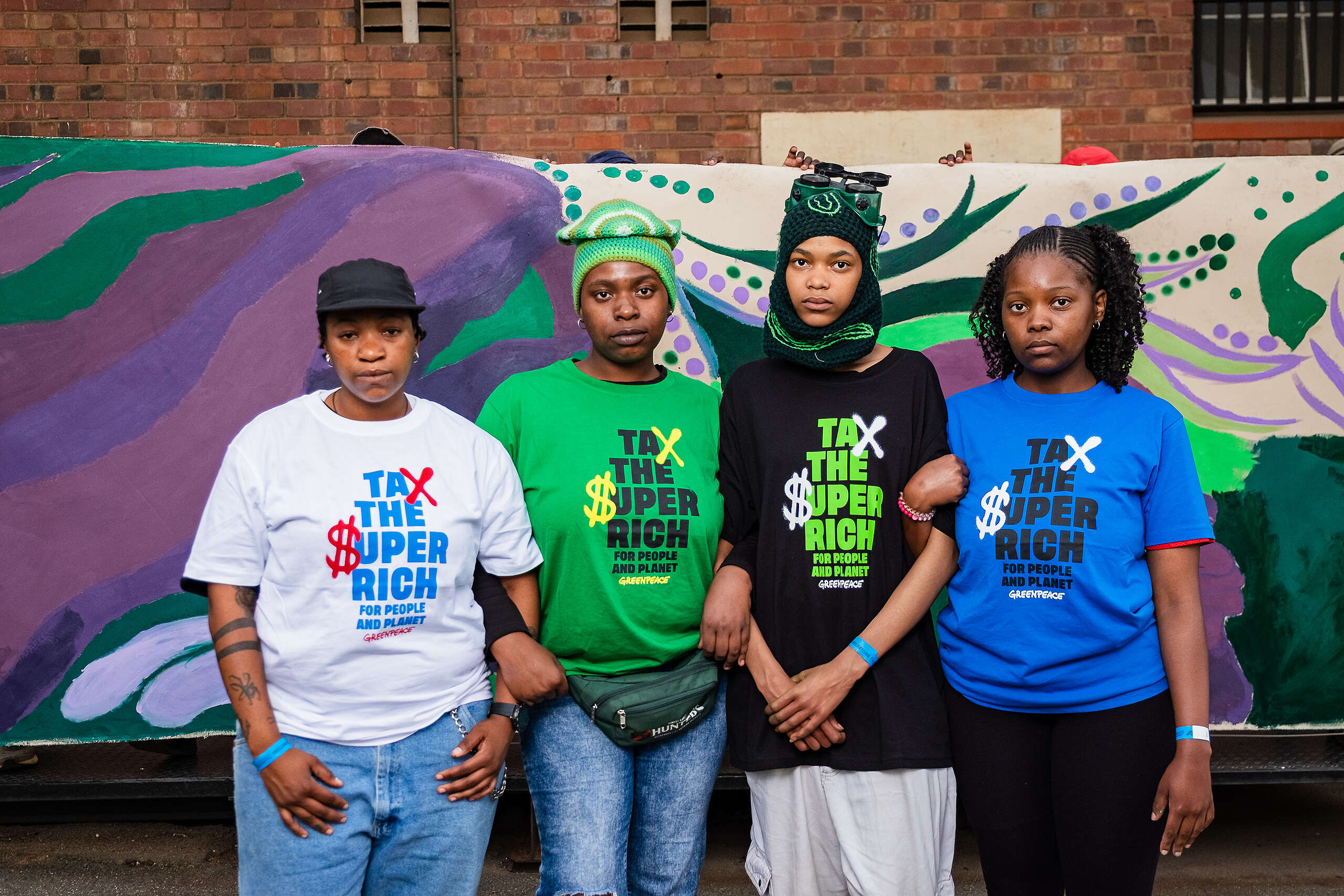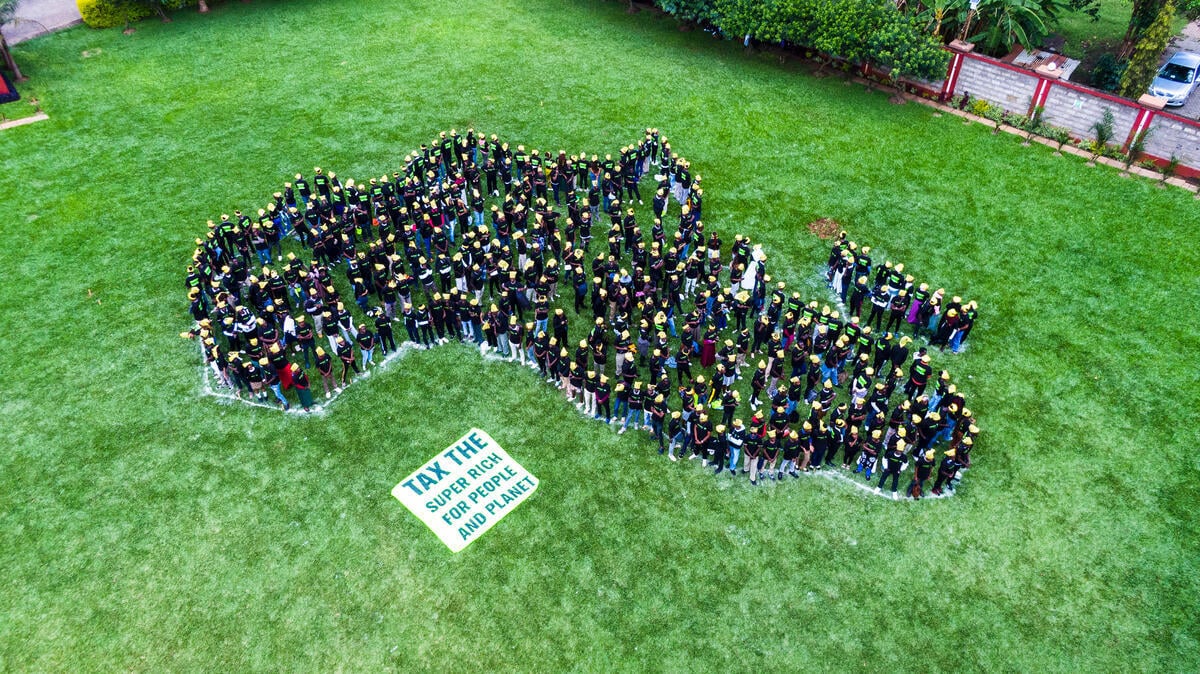History shows that simply explaining the moral injustice of slavery, sexism, ecological devastation, etc. is not enough. A powerful few benefit from injustice. Logical and moral truth does not necessarily matter to oppressive regimes. Today, for example, 99% of scientists confirm the reality of global heating from human carbon emissions, and yet governments appear influenced by paid deniers, typically funded by fossil fuel companies.
Thus, as a tactic, logic itself is limited. The truth needs public outcry. This was the case in Gandhi’s India, in Mandela’s South Africa, and in today’s global ecological crisis.
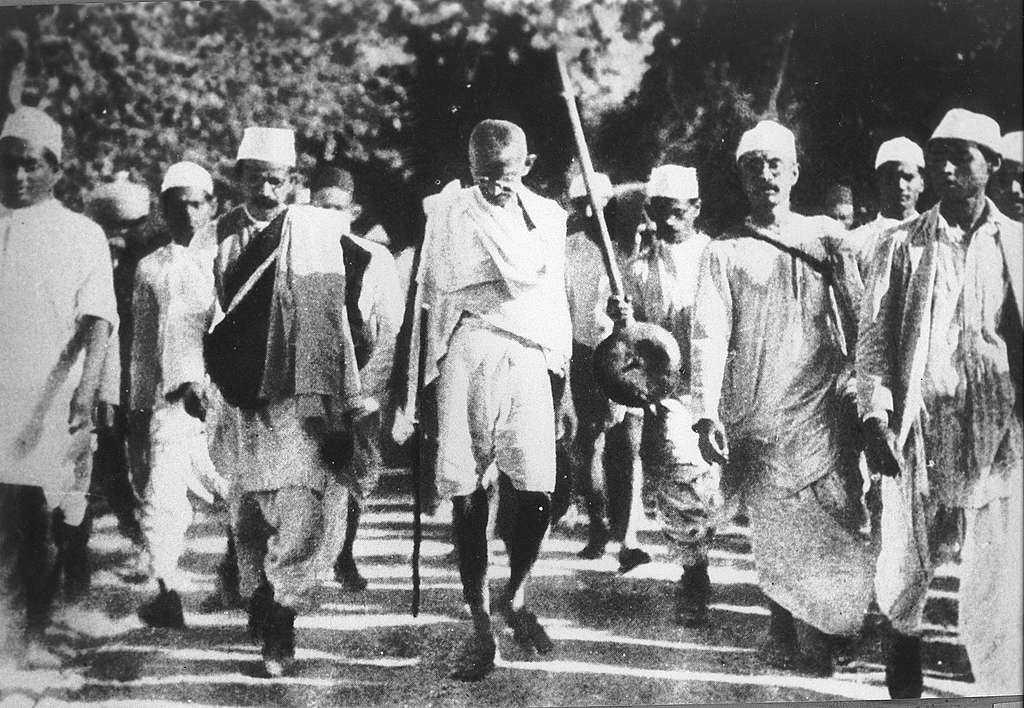 © WikiImages
© WikiImagesThe activist who wishes to change society, must find a means to enter the large scale public discourse where truth can emerge. The people must tell their story. The dynamics of narrative, however, require more than logic; narrative requires drama, characters, and visible commitment. Consider Gandhi making salt at the sea, Rosa Parks refusing to move from her seat on the bus, the Quakers sailing boats into nuclear test zones, or Greenpeace sailing boats between whalers and whales.
A year ago, Extinction Rebellion activists closed five bridges in London, and shut down BBC studios demanding that the public service broadcaster “tell the truth” about the climate and ecological crisis. This spring they shut down portions of central London for 11 days. Over a thousand citizens were arrested. On October 7, 2019 the group is beginning a campaign of “International Rebellion.”
Last year Greta Thunberg began striking from school to protest outside the Swedish parliament. She told the COP24 climate conference in Poland, “If solutions within this system are so difficult to find then maybe we should change the system itself.”
On September 20-27, the Global Climate Strike, inspired by Thunberg’s actions, mobilized some 7.6 million young activists in 185 countries, alongside over 73 trade unions and 3,000 businesses. This abrupt outbreak of civil disobedience and public action represents a significant shift in the public response to concerns about climate, biodiversity decline, synthetic toxins, and general ecological crisis.
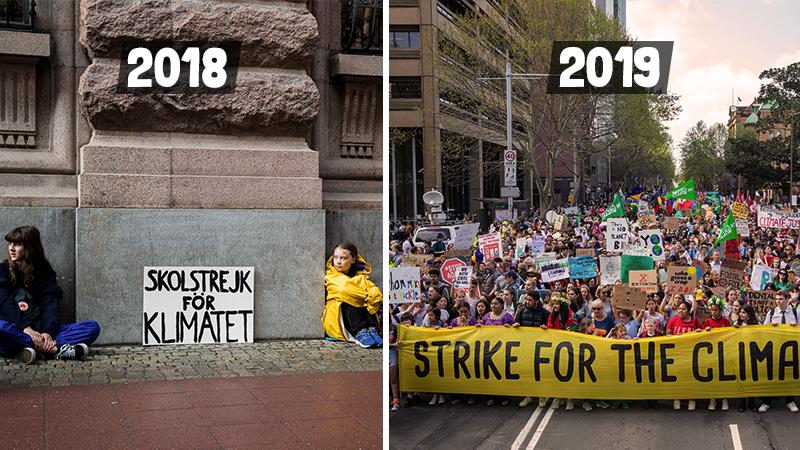
Why is civil disobedience necessary?
It is hard to imagine now, but in 1970, there was no widely visible ecology movement beyond conservationists preserving parks and discouraging litter. Greenpeace was founded by peace and civil rights activists who wanted to create a global ecology movement. Just explaining the science of ecology was not enough. We had to engage with the public at a deeper, emotional level. People needed to feel the issue, not just understand the logic.
In the 1970s, we needed a new narrative to expose the deceits of the status quo narrative. The industrial and financial elite claimed that they “created wealth” while in fact they were destroying the real wealth of productive ecosystems and healthy communities. Human life depends on nature. Industrialism faces very real biophysical limits. These limits might not be universally popular, but they are universally true. The new narrative had to demonstrate a respect for all of life.
In 1975, rather than explain ecology, we sailed a small fishing vessel, the Phyllis Cormack, out into the ocean to confront whaling fleets. We blockaded the whalers and returned with images of the slaughter, blood in the water, young men and women protecting the whales, and the decaying machinery of industrial plunder.
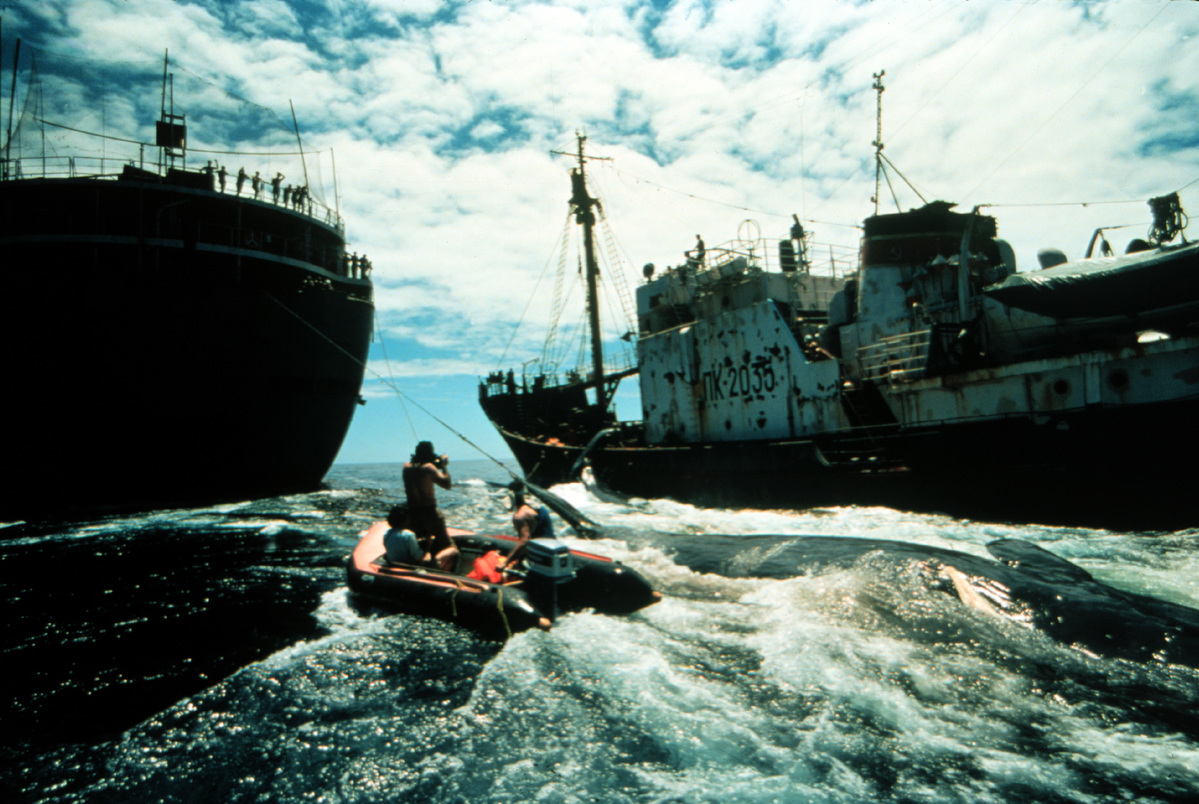
A new narrative was born. The modern ecology movement was born, not through logic, but because the activists told a better, more truthful story, and we told this story with non-violent direct action.
If we lived in a society governed by logic and moral truth, then these actions might not be necessary, but we do not live in such a society. We live in a society governed by money and power, both hoarded by a tiny elite to the detriment of most people and all of nature.
From history, we know that power corrupts. The powerful tend to leverage their power into more power for themselves. Power never relinquishes power willingly. Peaceful civil disobedience engages the powerful in a sphere that employs the people’s modest strengths.
The status quo can and will simply deny its crimes against humanity and nature. Chevron denies that they devastated communities in Ecuador with toxic oil waste. Monsanto denies that their toxic pesticides cause cancer. The oil industry now denies what they knew all along: that carbon emissions cause global heating.
The direct action of youth movements today have exposed those deceits. Once we shift the public narrative – as did Gandhi, Mandela, and the Quakers – we enter a field of battle in which our strengths matter, truth matters, moral righteousness matters, and the power of people matters. The industrial and financial elite can argue with us – which they do to this day – but once we shift the narrative to a genuine story rather than the fraudulent story of the status quo, they cannot undo that new narrative.
The British could not undo the images of their own brutality in India, exposed by Gandhi. Racists in the USA and South Africa could not undo the images of their injustice and brutality exposed by civil rights action. This is the power of moral narrative, achieved through non-violent direct action.
David vs. Goliath
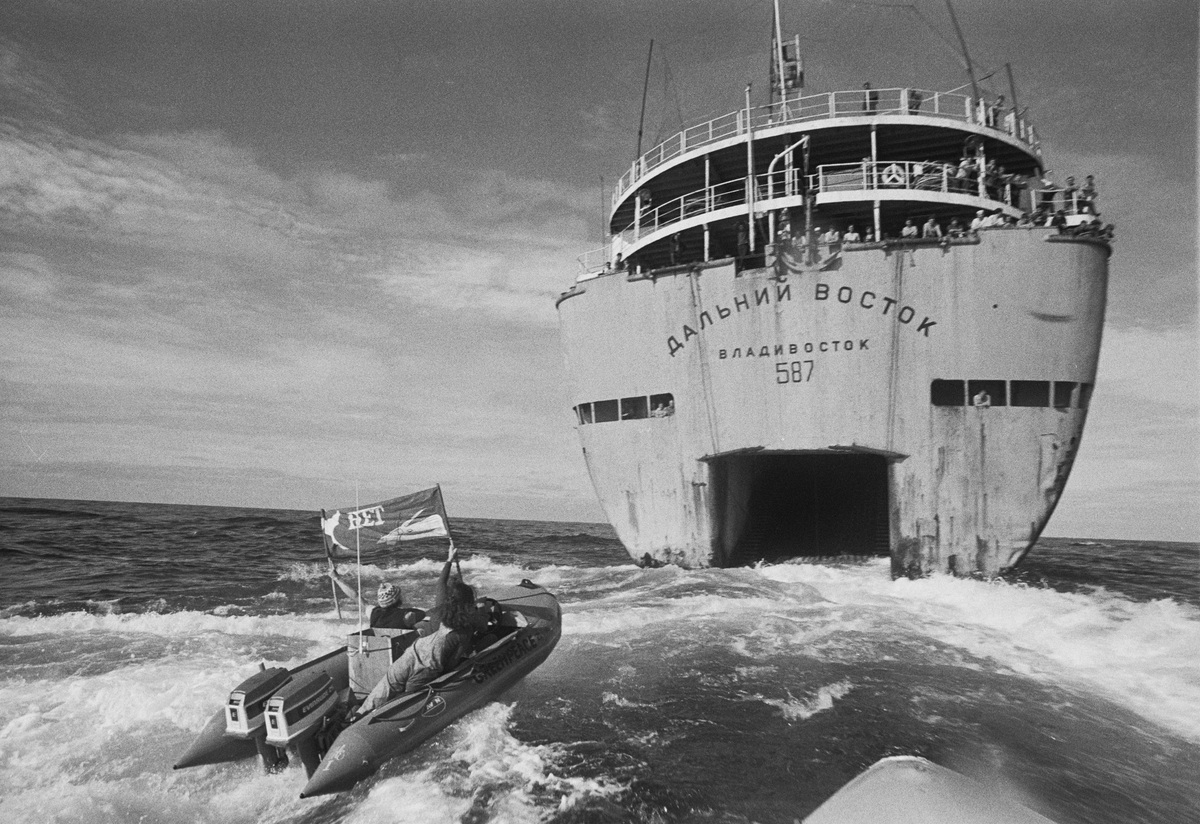
Historically, when private citizens confront the injustice of governments, empires, bankers, royalty, or corporations, they face an opponent who profits from injustice, who benefits from an imbalance of power. Today, the environmental and justice movements face a military-corporate status quo that possesses most of the money, hold a monopoly on official violence, control most of the mainstream media, have the ability to spy and infiltrate, and gain public support by intimidation and corruption. These practices are typical of powerful regimes, from ancient kingdoms to modern corporations.
In such circumstances, the relatively weak must find tactics of confrontation that avoid the opponents’ strengths, overcome their own limitations, use the people’s limited strengths, and simultaneously illuminate the issues.
Common citizens do not possess the money and power, but what do we possess? Moral truth, the strength of each other, creativity, the real wealth of a sharing community, genuine moral leadership; commitments to work for the moral truth without personal gain, and the power to tell our story; the power of narrative to expose the fraudulent story of the colonizers, plunderers, and oppressors. In our time, this fraudulent narrative, told by the corporate elite, includes the delusion of economic justice and the outright deceit of climate denial.
Why non-violence?
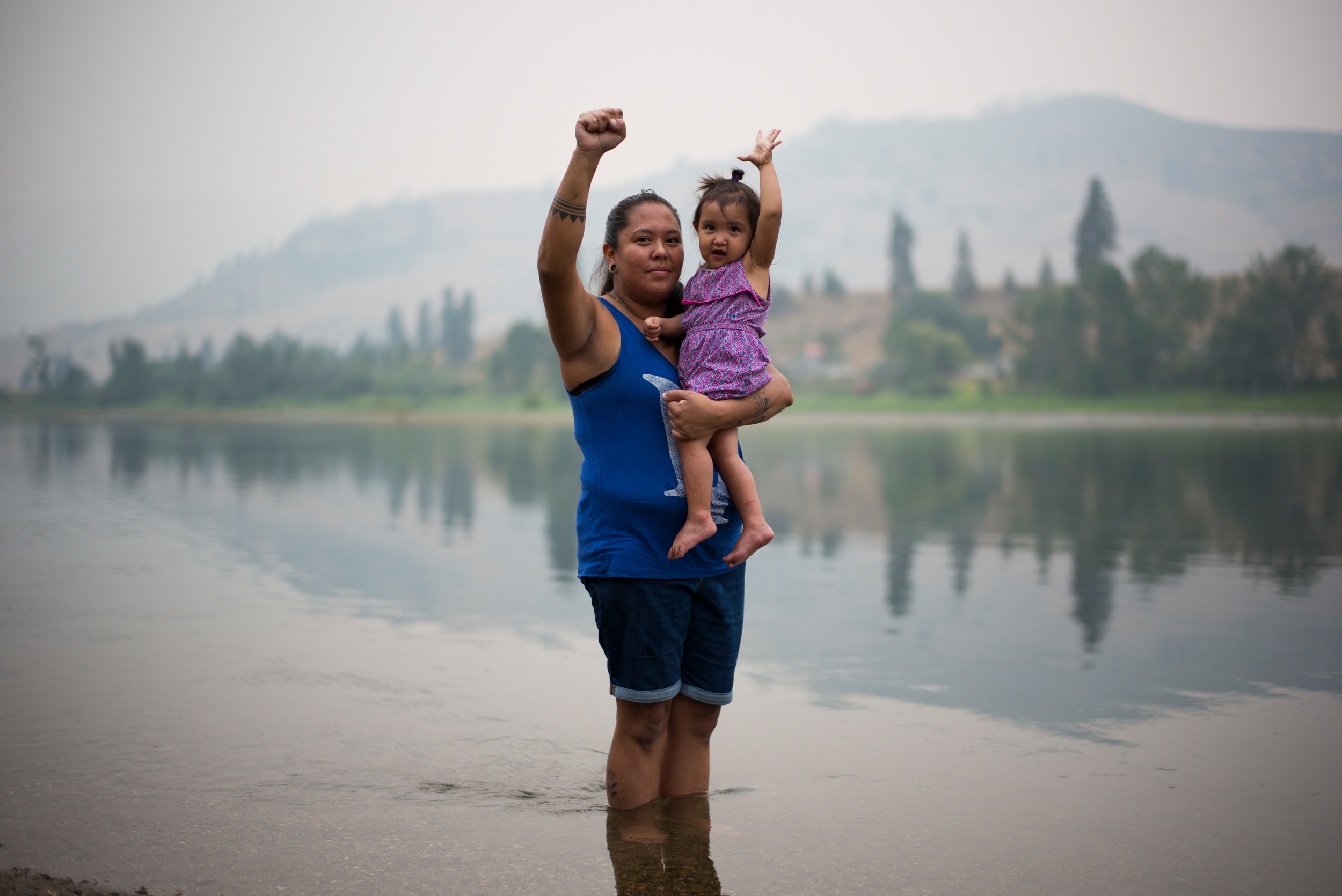
Although we may adhere to a philosophy of non-violence against person or property, activists may grow frustrated at the deceit, injustice, and slow pace of change. I have felt rage at many times and have sometimes been reminded of the worlds spoken by a despondent Mark Anthony from the third act of Shakespeare’s Julius Caesar:
O, pardon me, thou bleeding piece of earth,
That I am meek and gentle with these butchers!
Yet, again and again, we have remained non-violent. We have swallowed our anger and offered peaceful resistance. To be successful in telling a narrative of moral truth, we must remain absolutely peaceful, and this has remained a strength of direct action.
Violence plays into the hands of the status quo elites. They will use even a hint of violence as an excuse to unleash greater oppression of the people. Moral integrity, we know, does not always win, but has a chance to win when wielded with peacefulness. When practiced with compassion and love, direct action gains strength beyond the measure of money and violence.
I have spent time in jail, I have been mocked and ridiculed, I have been threatened and spied upon – these are my proudest moments. These are the times when I have known that I have some power to offset the power of violence and money. When the powerful over-react with oppression or violence, I know that my modest actions have exposed their deceits and the dark injustice of unrestrained power.
When the powerful strike back with violence and oppression, they are exposed. We learned this from Gandhi and the Quakers. We learned this from Rosa Parks and Nelson Mandela.
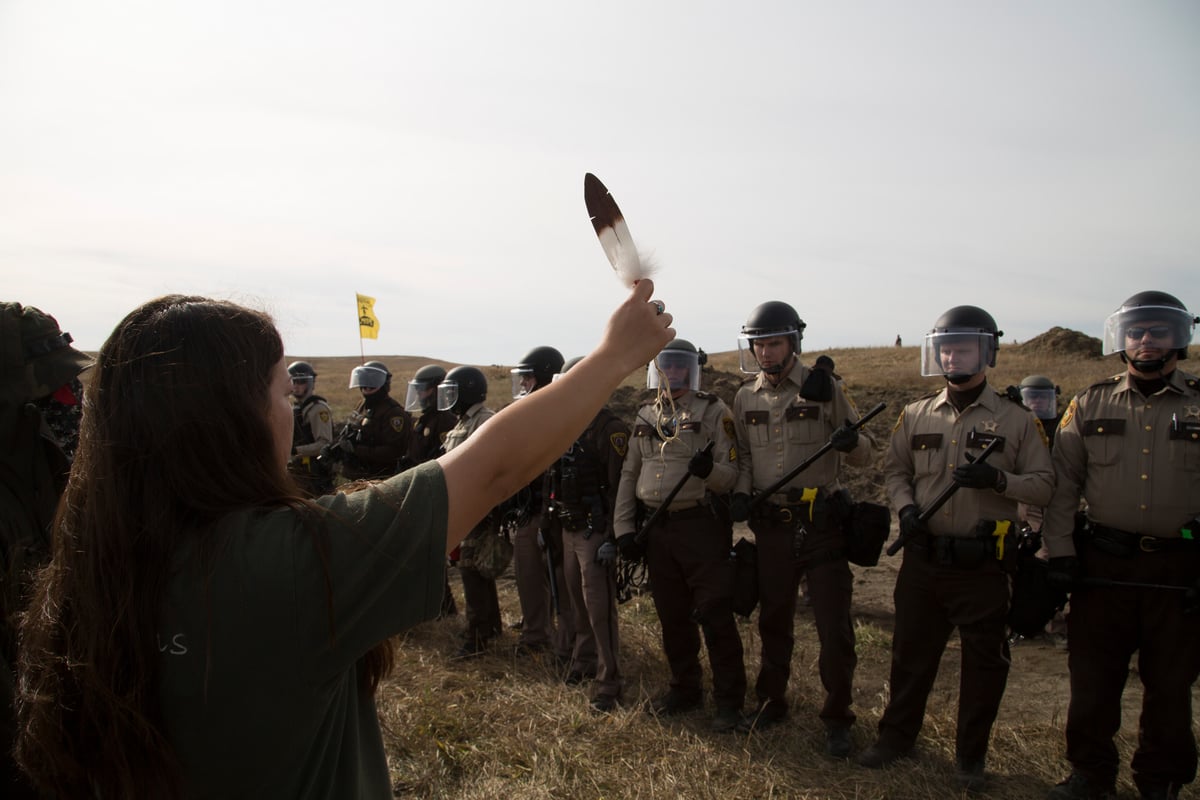
If logic, common sense, and common decency worked alone to change society, we would not need direct action. However, history shows that common decency requires action, common sense requires engagement, and moral logic needs visible evidence. These values require a narrative to come alive in people’s lives. The people, who want to create a more just world, must engage with peaceful direct action, because otherwise the truth does not prevail.



